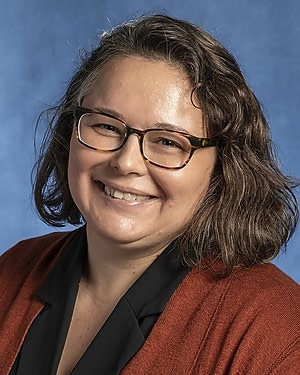Programação
-

Natasha E Zachara, Johns Hopkins University
- Director, Immersive Training in the Glycosciences
- Associate Professor of Biological Chemistry
What Dr. Zachara and her group do:The overarching goal of her laboratory is to characterize a novel endogenous protective signaling network of mammalian cells and tissues to provide insight into the molecular mechanisms underlying disease and to highlight novel therapeutic avenues. Cells and tissues respond to environmental and physiological injury by reprogramming transcription, translation, metabolism, and signal transduction to affect repair and survival, and if necessary to promote programmed cell death. Collectively, this cell-wide reprogramming is known as the cellular stress response and is characterized by the induction of chaperones known as heat shock proteins (HSP). The cellular stress response plays a critical role in the response of tissues to a broad range of physiological insults (stroke, heart attack, DNA damage) and dysregulation of this response is implicated in the pathogenesis of a host of diseases (proteinopathies such as Alzheimer’s disease). Her laboratory has demonstrated that the glycan modification, O-GlcNAc, is a critical regulator of the cellular stress response that is relevant to numerous clinical models.O-GlcNAc is a glycan modification of thousands of intracellular proteins such as transcription factors, kinases, and cytoskeletal proteins. O-GlcNAc has been implicated in regulating cellular processes including protein folding, localization, degradation, activity, post-translational modifications, and interactions. The cell coordinates these molecular events, on thousands of cellular proteins, in concert with environmental and physiological cues, to fine-tune epigenetics, transcription, translation, signal transduction, cell cycle, and metabolism. The cellular stress response is no exception: diverse forms of injury result in dynamic changes to the O-GlcNAc subproteome that promote survival. Research in Dr. Zachara's laboratory is broadly focused on answering two questions in cell models of oxidative stress and ex vivo models of cardiac ischemia reperfusion injury: Firstly, which proteins are dynamically O-GlcNAc modified in response to injury and how does this simple sugar modify protein function to promote cell survival. Secondly, how are the enzymes that add and remove O-GlcNAc regulated at times of injury. Her group utilizes traditional biochemical and molecular biology based techniques in combination with high throughput technologies and genetic manipulation to address these questions.
Paper that will be useful (attached here and in the edisciplinas homepage):Other review that will be useful:Zachara NE. Critical observations that shaped our understanding of the function(s) of intracellular glycosylation (O-GlcNAc). FEBS Lett. 2018 Dec;592(23):3950-3975. doi: 10.1002/1873-3468.13286. Epub 2018 Nov 24. PMID: 30414174; PMCID: PMC6492276.See you Thursday !!!Thursday, Aug 12 202111:00 am Sao Paulo time10:00 am (EDT)
03:00 pm (BST/WET)Cheers !!!
Alline, Katiuchia, Lucila, Rita e Vania